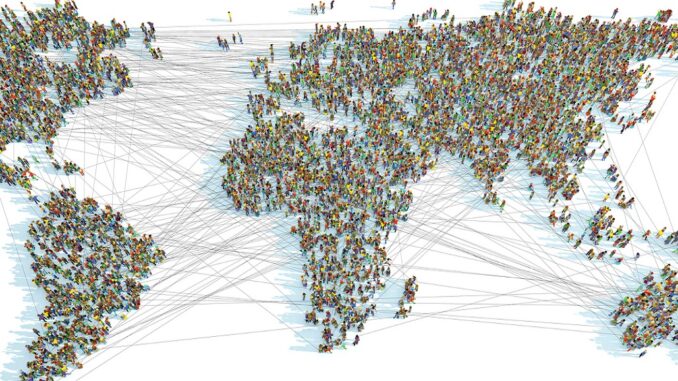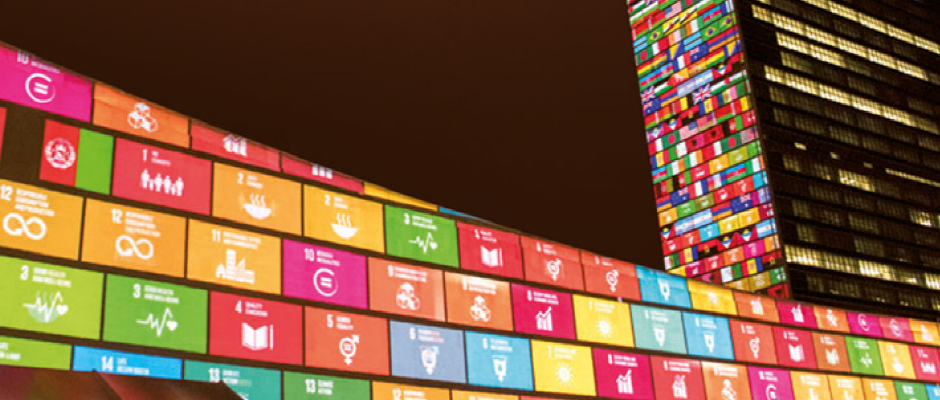
The context in which international development cooperation is taking place has changed over the last decade.
Global poverty rates have declined, but economic and social inequalities remain widespread challenges —notably gender-based inequalities. Some of the major considerations that shape poverty patterns include the COVID-19 pandemic, the climate crisis, natural disasters, conflicts, and a weakening of democracy and human rights.
In responding to these issues, international development cooperation is becoming increasingly complex, more political, and more polarized, with emerging new powers and organizations transcending the old North-South continuum.
Local and Regional Governments Matter
By 2050, close to 70% of the world’s population will live in urban areas. More than ever, cities, local, regional, and metropolitan governments, and associations of local governments have a critical role to play in addressing global development issues. This has been recognized in the SDGs and the 2030 Agenda for Sustainable Development, and other international agendas.
At the forefront to tackle development challenges and inequalities, local and regional governments (LRGs) still struggle with gaps in capacity, inadequate financial resources, lack of recognition, and re-centralization setbacks.
The LRGs’ and local government associations’ (LGAs) development cooperation, commonly designated as “decentralized cooperation”, has proven to be an effective model for building LRG capacity, facilitating and growing resource mobilization, and ultimately helping address global challenges.
A Call to Action with Five Key Objectives
United Cities and Local Governments (UCLG) believes that decentralized cooperation is a important way to achieve the SDGs by the year 2030.
This Policy Paper is UCLG’s new call to action to make decentralized cooperation fully recognized, efficient, and impactful, responding to the most pressing development concerns faced by local and regional communities. The objectives of our call to action are as follows:
1. Push for more institutional recognition, with real resources, for LRGs to address global challenges. LRGs and LGAs should be better recognized as essential partners to address global development challenges, with formal seats at the table, along with national governments, when concrete actions are designed and decided upon. The involvement of LRGs and LGAs in policy dialogues must evolve into real partnerships and tangible allocation of resources when it is time to implement policies and programs.
2. Make decentralized cooperation a fully recognized and resourced development cooperation approach. Decentralized cooperation is a essential and effective approach to development, which adds concrete value to bilateral and multilateral development assistance. Moreover, LRGs and LGAs need a better enabling environment in support of decentralized cooperation and dedicated funding must be increased and more predictable.
3. Make decentralized cooperation more effective, professional, innovative, and sustainable. LRGs and LGAs must strategically focus their international initiatives on the global challenges that matter now and for the future, particularly for the most vulnerable and disadvantaged groups. They should better coordinate amongst themselves and with other actors to create synergies and increase the impact of their cooperation. LRGs and LGAs need to continue investing in knowledge, result monitoring, accountability, and innovative approaches to remain efficient and agile in an ever-changing global context.
4. Further engage decentralized cooperation in the financing sphere. LRGs and LGAs must be better equipped, prepared, and supported to access new financing opportunities, and to fully appreciate when and how to use various forms of financing. Through decentralized cooperation, LRGs and LGAs can benefit from inspiring innovative financing experiences and the direct support of their peers.
5. Foster stronger public and political support for decentralized cooperation. LRGs and LGAs should play a key role helping citizens engage in international relations, and in fostering global citizenship. They should actively seek to raise awareness, engage citizens and political groups, and advocate for decentralized cooperation.
Implementing the Policy
On an annual basis, the implementation of the Policy will be reviewed against its objectives and action areas. Together, we will continue to be global leaders in development cooperation to help achieve the SDGs and the 2030 Agenda.
This blog post summarizes the call to action on UCLG Policy Paper, The Role of Local and Regional Governments in Development Cooperation— A New Call to Action towards 2030 and Beyond. The Policy Paper was presented for adoption by the UCLG World Council in October 2022 and provides direction for UCLG and its members for the years to come. Ultimately, it is a call to action with five key objectives aimed at strengthening decentralized cooperation to help achieve the SDGs by the year 2030.
This Policy was prepared by the Capacity and Institution Building (CIB) Working Group of UCLG. It is based on research and extensive interviews conducted by the Institute for Development Studies (IDS) and the work of both UCLG’s Policy and Learning teams and UCLG’s regional sections on decentralized cooperation and the SDGs.



